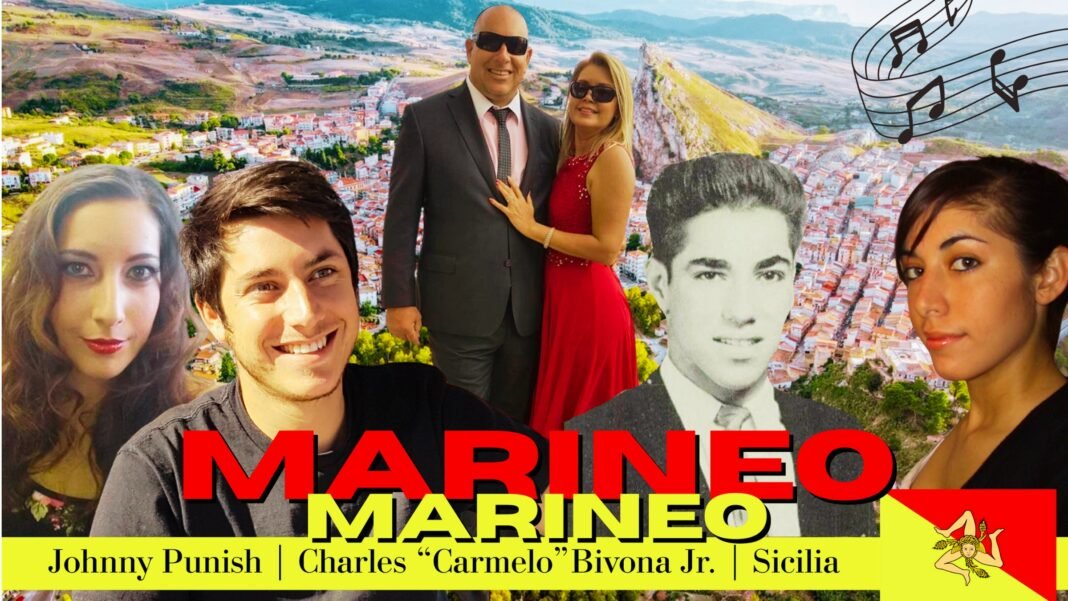by Charles “Carmelo” Bivona Jr.
So The Big Question Is….
Where does the name “Bivona” come from?
The farthest back we can trace on the Bivona side is to Ciro Bivona, who was born in 1803 in Marineo, Sicily. We don’t yet know who his parents were. Someday we might discover more, but for now, that’s as far back as we can go on the Bivona line.
On Ciro’s wife’s side, though, we can go much further. Her family, the Fassino family, stretches back to the early 1600s!
Domenico Fassino, born in 1620 in Locana, Torino, in the Piedmont region of Italy (North Italy), is our 9th great-grandfather.
- His son was Pietro (born 1644).
- Pietro’s son was Giovanni (born 1675).
- Giovanni’s son was another Pietro (born 1701).
All of them were born in Locana, a mountain town north of Nice, France and south of Geneva, Switzerland.
Pietro’s son was Giancomo Fassino. We don’t know for sure if he was born in Locana or in Marineo, but we do know that his daughter, Catarina Fasiano, was born in Marineo in 1803. So it could have been Pietro Fassino or his son who first went to Marineo in Sicily from the North of Italy. We just don’t know which one came to Marineo to ensure that I exist!
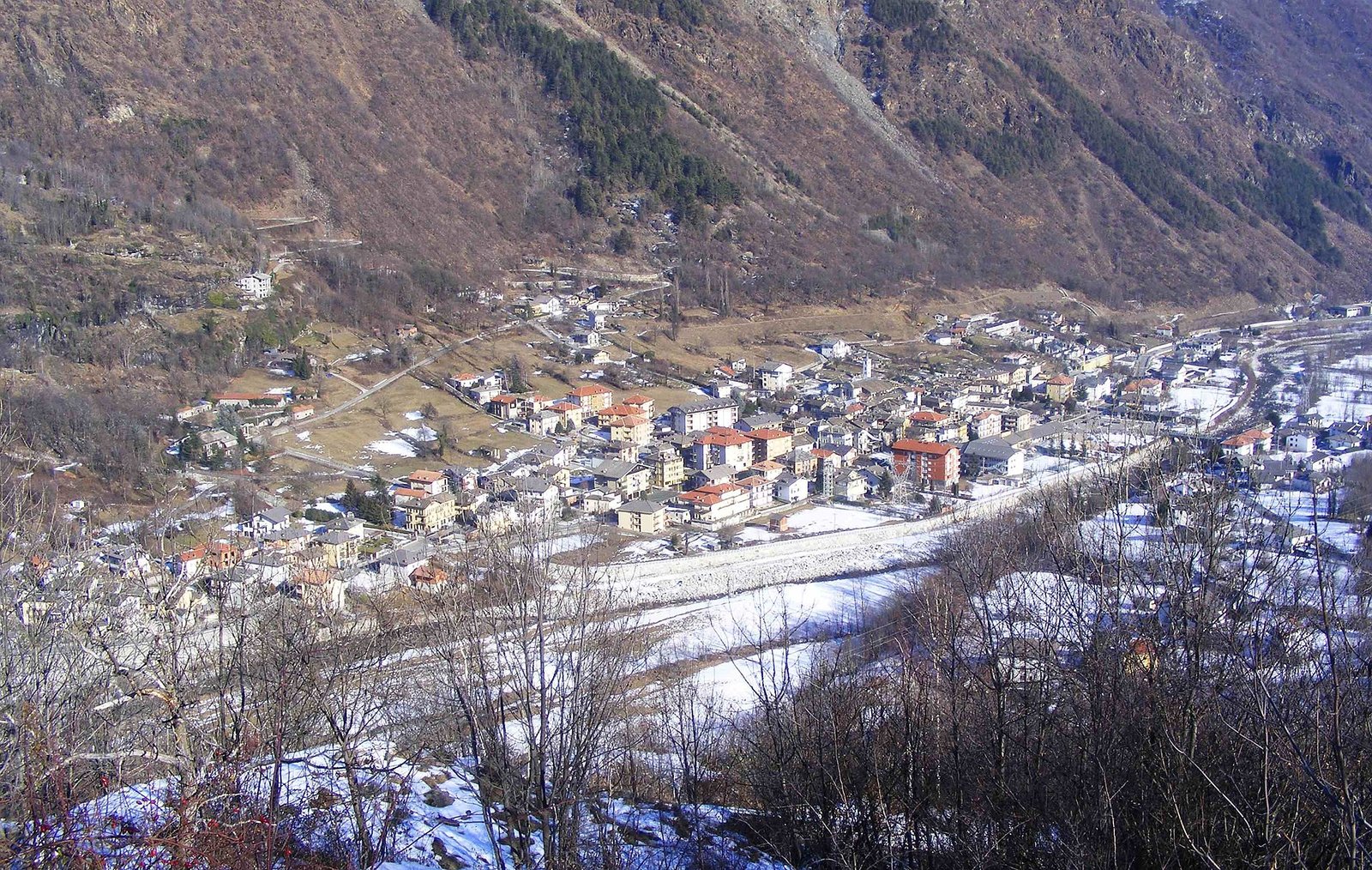
Life in Locana, Piedmont (1600s–1700s)
-
-
- A high-Alpine farming village: Locana sits in the Gran Paradiso mountains near today’s border with France and Switzerland. In the 1600s it was a small, self-sufficient community. Families raised cattle and sheep, made cheese, grew rye and chestnuts, and cut timber.
- Limited land & harsh winters: Population growth meant land was scarce. Harsh winters shortened the growing season and sometimes drove people to seek opportunities elsewhere.
- Seasonal migration was normal: Many northern Italians—especially young men—worked elsewhere part of the year (as masons, woodcutters, soldiers, or traders) and returned home in summer. Some never came back.
-
Why Move South to Marineo, Sicily?
A trip from Alpine Piedmont to inland Sicily was dramatic but not unheard-of. Possible motives:
-
-
- Economic Opportunity
- Sicily in the early 1700s had fertile farmland and a need for skilled workers after decades of war and plague.
- Piedmontese stonemasons and carpenters were valued across Italy; a craftsman might follow a building project or a patron to Palermo’s region.
- Military Service or Politics
- In the early 1700s Sicily changed rulers several times (Spanish → Savoy → Austrian → back to Bourbon).
- The Duchy of Savoy—Locana’s ruling state—briefly controlled Sicily (1713-1720). Soldiers, administrators, or camp followers from Piedmont sometimes stayed after their service.
- Marriage or Family Ties
- Seasonal workers often married locals they met on the road or during southern postings, creating a reason to settle permanently.
- Escaping Hardship or Obligations
- Famine years, debt, or local disputes sometimes pushed people to start fresh far away.
- Economic Opportunity
-
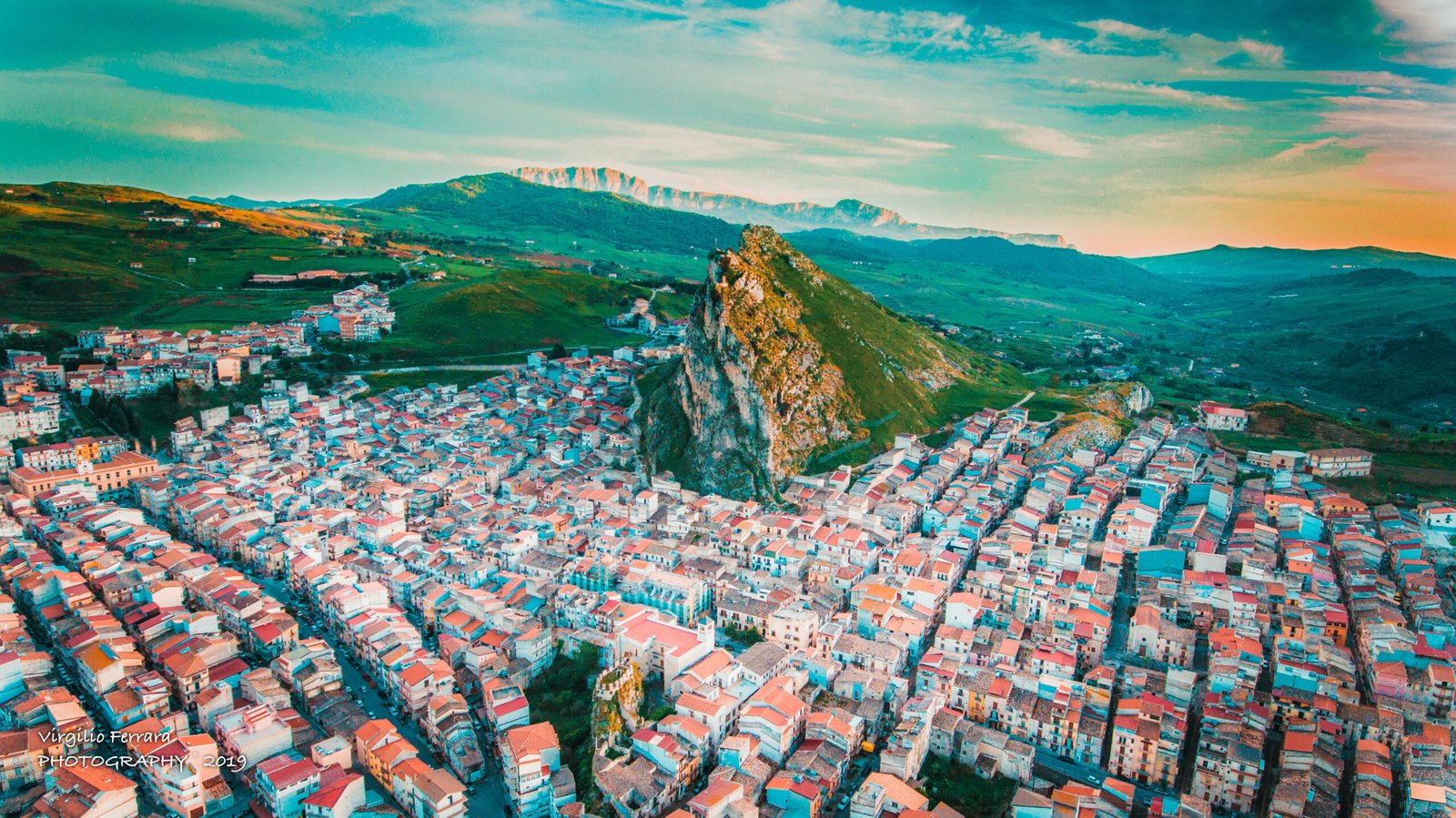
What Was Happening in Marineo, Early 1700s
-
-
- Marineo is a mountain town just inland from Palermo, part of a rich wheat-growing and olive-oil region.
- After the 1693 earthquake devastated parts of eastern Sicily, western towns like Marineo grew as people resettled.
- Palermo, only 40 km away, was a busy Mediterranean port attracting merchants, artisans, and anyone seeking a more prosperous life.
-
A Plausible Story
My Fassino ancestor—perhaps a mason, soldier, or seasonal laborer—could have followed Savoy troops or a construction project to Sicily after 1713, married a local woman, and stayed. Harsh Alpine winters and limited farmland at home made the warmer, food-rich Sicilian hills attractive, and the political link between Savoy (Piedmont) and Sicily at that moment created an open path.
Bottom Line
We can’t know the exact reason, but history points to work, marriage, or military service during Savoy’s rule of Sicily as the most likely motives. My family’s move from snowy Locana to sunny Marineo fits a larger pattern of Italians moving for opportunity long before modern travel made it easy.
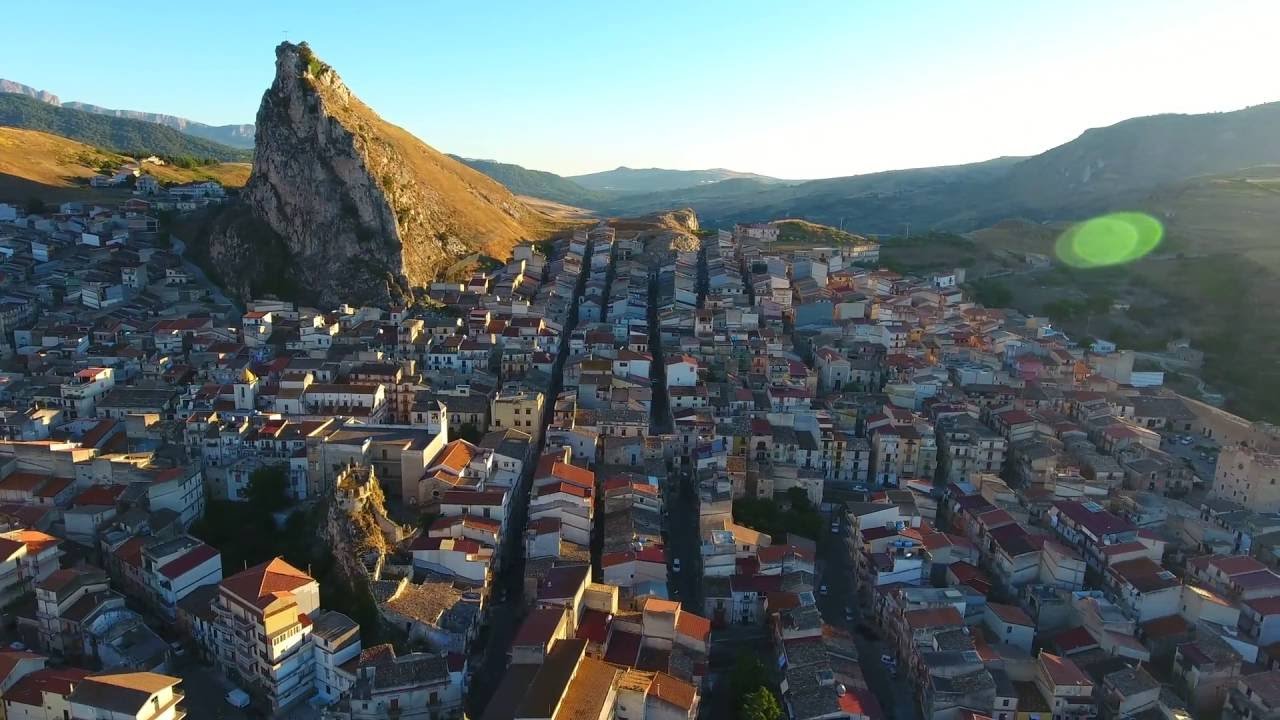
THE STORY CONTINUES in MARINEO, SICILY
Catarina Faisano later married Ciro Bivona (also born in Marineo in 1803). This marriage joined the Fassino (Fasiano) and Bivona families.
Together, they had Carmelo Bivona, born in 1825 in Marineo. He is my 3rd great-grandfather.
Carmelo’s son was Alfonso Bivona, born around 1860, who married Maria Concetta Calderone. Their son was Carmelo Bivona, born in 1887 in Marineo.
In 1889, Alfonso, Maria, and little Carmelo left Marineo and emigrated to New York City, USA. There, Carmelo became known as Charlie (or Charles) Bivona.
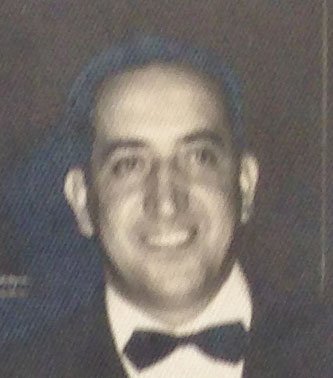
Charles’s son was Alfonso Charles “Big Al” Bivona (born 1917), who became my grandfather. His son, Charles Alfonse Bivona (born 1941 in Brooklyn, NYC), is my father.
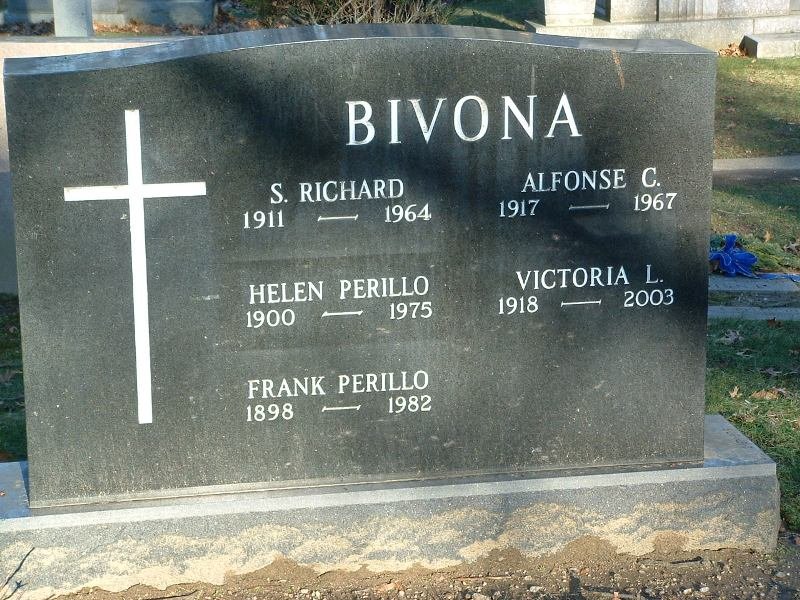
And I am Charles Bivona Jr., born in 1963 Bronx, NYC, USA. My son is Charles Javier Bivona, born in 1991, Moreno Valley, California, USA. His daughter is Sofia Marcela Bivona, born in 2019, Ensenada, Baja California Mexico.
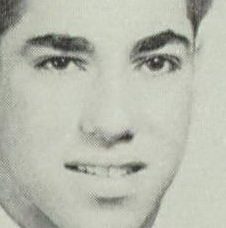
So the story goes:
We know that the Bivona name roots us in Marineo, Sicily, as far back as the early 1800s.
We are still searching for the parents of Ciro Bivona, but most likely, they too were from Marineo. Back then, people rarely moved from their towns. And Marineo itself is ancient—over 1,000 years old.
The mystery of the Bivona name is still unfolding, but we already know we belong to a family that has lived in Marineo for centuries.
Stay tuned—there’s more history waiting to be discovered!
MARINEO, MARINEO
by Johnny Punish aka Charles “Carmelo” Bivona Jr in the language of Sicily (Sicilianu)
Marineo Marineo
cantu d’amuri e di celu
Marineo Marineo
pi sempri ti canterò
Marineo
Oh Marineo
Tra li munti di Sicilia
unni u suli va a ripusari
c’è un paisi di petra antica
ca u tempu nun pò cangiari
Dâ cinquecentu nni chiama
vuci di sangu e di mari
ogni petra conta un nomi
ca nun finisci d’ammari
Marineo Marineo
cantu d’amuri e di celu
Marineo Marineo
‘nta cori ti purtarò
Di li casi biancu a lu ventu
ogni passu è giuramentu
Marineo Marineo
pi sempri ti canterò
Alfonso e Maria Concetta
cu lu picciottu Carmelo
pigghiaru la strata d’America
ma purtaru lu to celu
E li nomi ca si ripètenu
Alfonso Carmelo ancora
cunta l’anima d’un pòpulu
ca l’eternu amuri onora
Marineo Marineo
cantu d’amuri e di celu
Marineo Marineo
‘nta cori ti purtarò
Di li casi biancu a lu ventu
ogni passu è giuramentu
Marineo Marineo
pi sempri ti canterò
I crossed the ocean to find you
Where my roots forever grow
Cousins opened their doors so wide
And the mountain winds still blow
Your bells your laughter your stories
They welcomed me home again
Marineo my forever
You’re the song that will never end
Marineo Marineo
cantu d’amuri e di celu
Marineo Marineo
‘nta cori ti purtarò
Di li casi biancu a lu ventu
ogni passu è giuramentu
Marineo Marineo
pi sempri ti canterò
Marineo
Marineo
Marineo
————————————–
ENGLISH TRANSLATION
Marineo, Marineo
song of love and of sky
Marineo, Marineo
forever I will sing to you
Marineo
oh Marineo
Among the mountains of Sicily
where the sun goes to rest
there is a village of ancient stone
that time cannot change
From the 1500s it calls to us
voices of blood and sea
every stone speaks a name
that never stops being loved
Marineo, Marineo
song of love and of sky
Marineo, Marineo
I will carry you in my heart
From the white houses to the wind
every step is a vow
Marineo, Marineo
forever I will sing to you
Alfonso and Maria Concetta
with the young boy Carmelo
took the road to America
but carried your sky with them
And the names that repeat themselves
Alfonso, Carmelo again
tell the soul of a people
that honors eternal love
Marineo, Marineo
song of love and of sky
Marineo, Marineo
I will carry you in my heart
From the white houses to the wind
every step is a vow
Marineo, Marineo
forever I will sing to you
I crossed the ocean to find you
Where my roots forever grow
Cousins opened their doors so wide
And the mountain winds still blow
Your bells your laughter your stories
They welcomed me home again
Marineo my forever
You’re the song that will never end
Marineo, Marineo
song of love and of sky
Marineo, Marineo
I will carry you in my heart
From the white houses to the wind
every step is a vow
Marineo, Marineo
forever I will sing to you
Marineo
Marineo
Marineo


